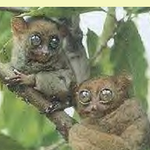
Almost nothing in the ocean can resist eating squid. That includes the macaroni penguin, which "live almost entirely on krill" but "do supplement their krill diet with up to five percent squid."
I wonder if they get specific nutrients from squid that are lacking in krill? Someday when I have more time I'll have to pursue that . . .

